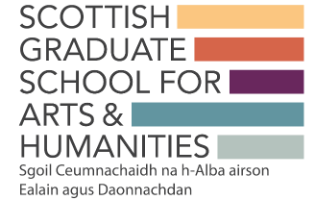Understanding Scottish Gaelic, and tips on learning it beyond DuoLingo
Tuesday 22nd of June
2.30 - 4pm
Dr Abigail Burnyeat
Abigail is a Head of Research at Sabhal Mòr Ostaig UHI. Her primary area of interest is in medieval Irish literary and textual culture, with a particular focus in the following areas: educational practice, bilingualism, orality, manuscript culture, medieval literary and textual theory. Her research focuses on the origins and development of the medieval Gaelic literary critical tradition.
About this Session
This session provides non-Gaelic speakers (and beginning learners) with a taste of the language, including some tips on how to pronounce and understand the meanings and importance of Gaelic names of people and places; and direction to resources and language-learning opportunities, including what to do after DuoLingo.
Gaelic is often said to be a difficult language, but we think of it as a different language! We will show you the features of Gaelic that are shared with other European languages, and the features that make it different. By using place-names and people’s names as a launchpad for discussion on pronunciation and linguistic features, we will give you tips on learning Gaelic and see how Gaelic fits into the history and landscape of Scotland.
Learning Outcomes
By the end of this session, participants will have gained:
- An understanding of some of the key features of the Gaelic language.
- The ability to pronounce and understand some key elements of Gaelic place and personal names.
- A knowledge of some of the key digital and educational resources that can be used to support Gaelic learning, and learning about Gaelic.
Who might be interested?
This session will be of particular interest to doctoral researchers in all disciplines of the arts and humanities who are curious to find out more about the Scottish Gaelic language and learn some basics, including tips on pronunciation. Likely to be of particular interest to anyone participating in Scottish Gaelic Duolingo!
Click Here to Register (Please note that places are limited and will be allocated on a first come first served basis)
First published: 26 May 2021



